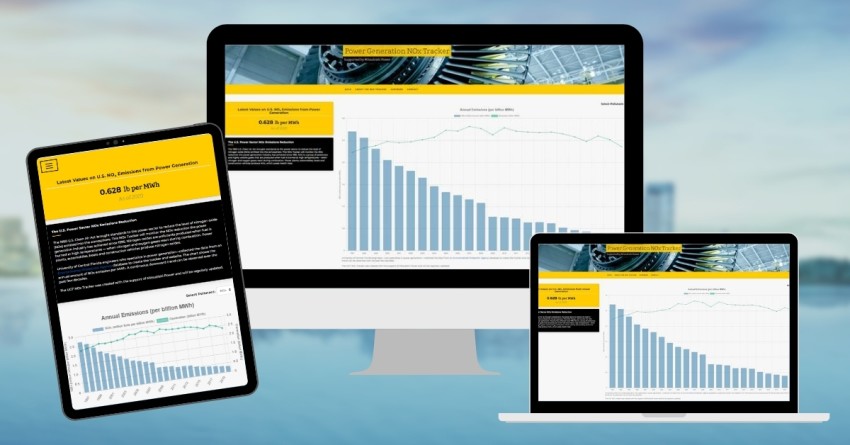Mitsubishi Power, Univ of Central Florida develop NOx tracking tool for nitrogen oxide emissions

Mitsubishi Power Americas and the University of Central Florida have formed an industry-education partnership to establish a reliable and accessible source of information that tracks nitrogen oxide (NOx) emissions as the U.S. power generation industry undergoes an energy transformation to decarbonize.
The online Power Generation NOx Tracker (https://www.cecs.ucf.edu/nox/) uses data from the U.S. Environmental Protection Agency database as analyzed by UCF’s Center for Advanced Turbomachinery and Energy Research (CATER) to show trends over time. The tool was developed in an industry-education partnership with Mitsubishi Power and UCF to help interested parties understand and solve complex technological challenges as the power generation industry works toward a more reliable, secure and cleaner energy future. (Credit: Mitsubishi Power)
The online Power Generation NOx Tracker (https://www.cecs.ucf.edu/nox/) uses data from the U.S. Environmental Protection Agency database as analyzed by UCF’s Center for Advanced Turbomachinery and Energy Research (CATER) to show trends over time. The NOx Tracker is accessible at no cost to the public and interested parties such as industry, research, government and non-government organizations. This is the second tracker Mitsubishi Power has helped launch in its efforts to inform the public and industry about progress toward decarbonization. The Carnegie Mellon University Power Sector Carbon Index, which estimates the carbon dioxide intensity of the U.S. power sector using publicly available data sources, launched in 2017.
The 1990 U.S. Clean Air Act Amendments brought additional standards to the power sector to reduce the level of nitrogen oxides emitted into the atmosphere. Nitrogen oxides are pollutants produced when nitrogen and oxygen react at high temperatures, such as in power plants, automobiles, boats, and heavy vehicles. The EPA reported annual nitrogen oxide emissions from power plants fell by 87% from 1995 to 2020.
“As a university our role is to teach and produce research that solves a public challenge,” said Dr. Jayanta Kapat, the UCF engineering professor who leads CATER and is responsible for the data analysis on the NOx Tracker. “Innovation driven by industry and academia is changing the power generation landscape. We need to make sure as we advance that we do so responsibly. There has been concern that as the power generation industry decarbonizes, nitrogen oxides would become a problem; however, the tracker shows that nitrogen oxides have been declining significantly to low levels. This reflects successful innovations. Monitoring will help us all stay on track as we move forward.”
Experts at UCF’s CATER are evaluating and developing technology to address nitrogen oxides as well as other pollutants regulated by the U.S. Clean Air Act and monitored by the EPA. UCF engineers developed the NOx Tracker with the support of Mitsubishi Power to not only track the cumulative percent change in nitrogen oxide emissions, but also to follow the cumulative change in sulfur dioxide and overall power generated. This helps researchers and industry better understand and solve complex technological challenges as they work toward a more reliable, secure and cleaner energy future. Kapat and UCF post-doctoral scholar Dr. Ladislav Vesely will be updating the tracker every quarter.
Paul Browning, President and CEO of Mitsubishi Power Americas, said, “Reducing power generation emissions, not only from carbon dioxide but also from nitrogen oxides and sulfur oxides, is essential in the overall energy transition path our industry is on. Mitsubishi Power is addressing all of these emissions while developing a variety of decarbonization technologies. The NOx Tracker is yet another effort by Mitsubishi Power to bring transparency to air quality issues during this energy transition and to highlight the industry’s progress. It complements our overall mission of providing power generation and energy storage solutions to our customers, empowering them to affordably and reliably combat climate change and advance human prosperity. Together with our partner UCF, we are enabling and informing a Change in Power.”
Source: japantoday.com
